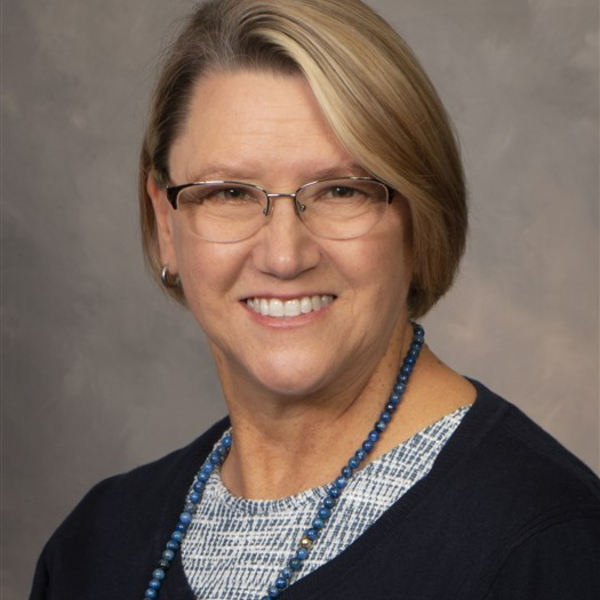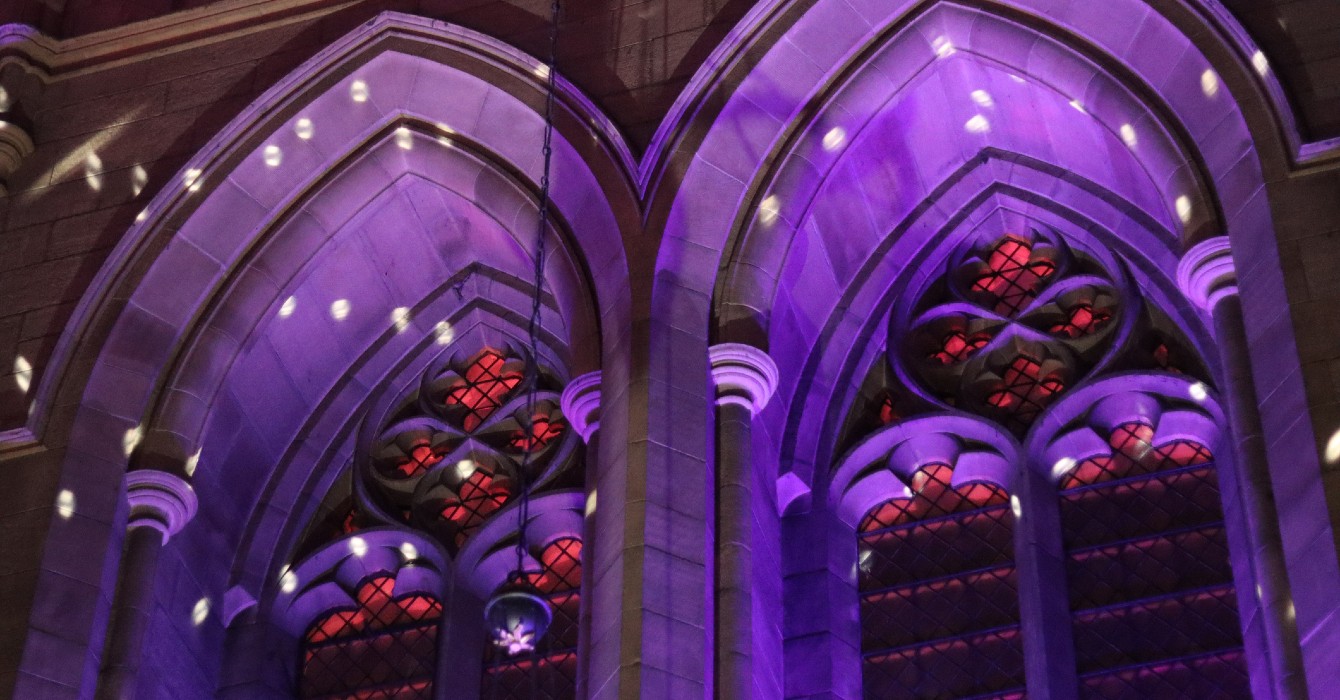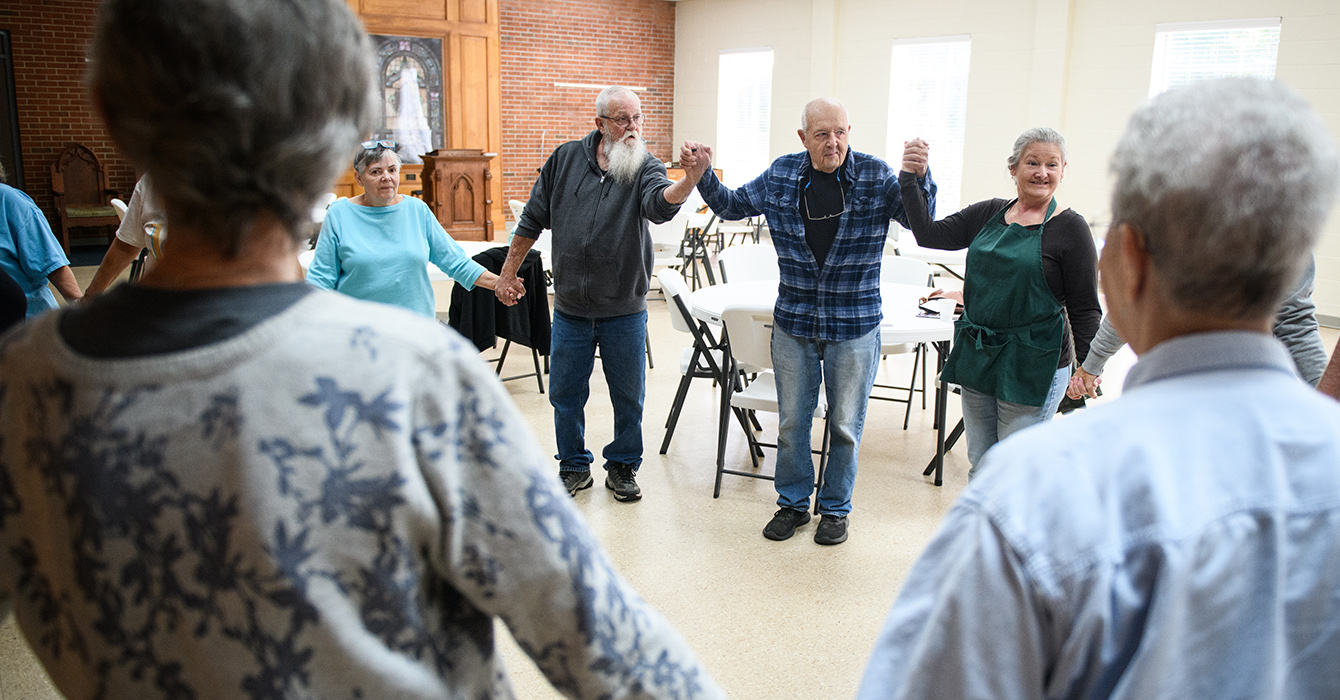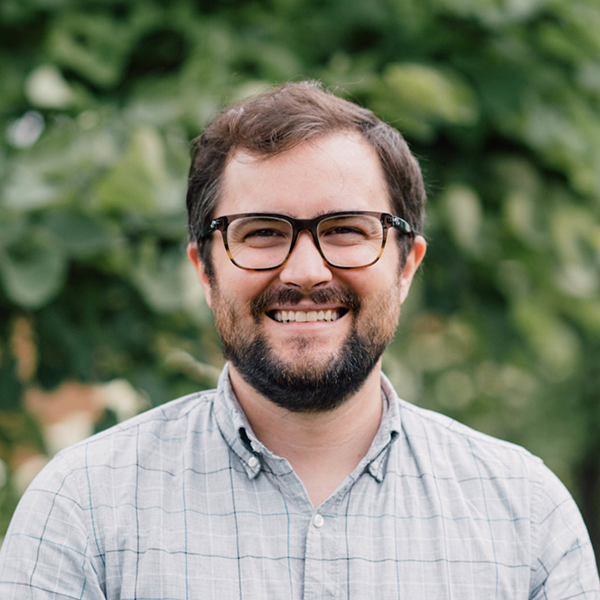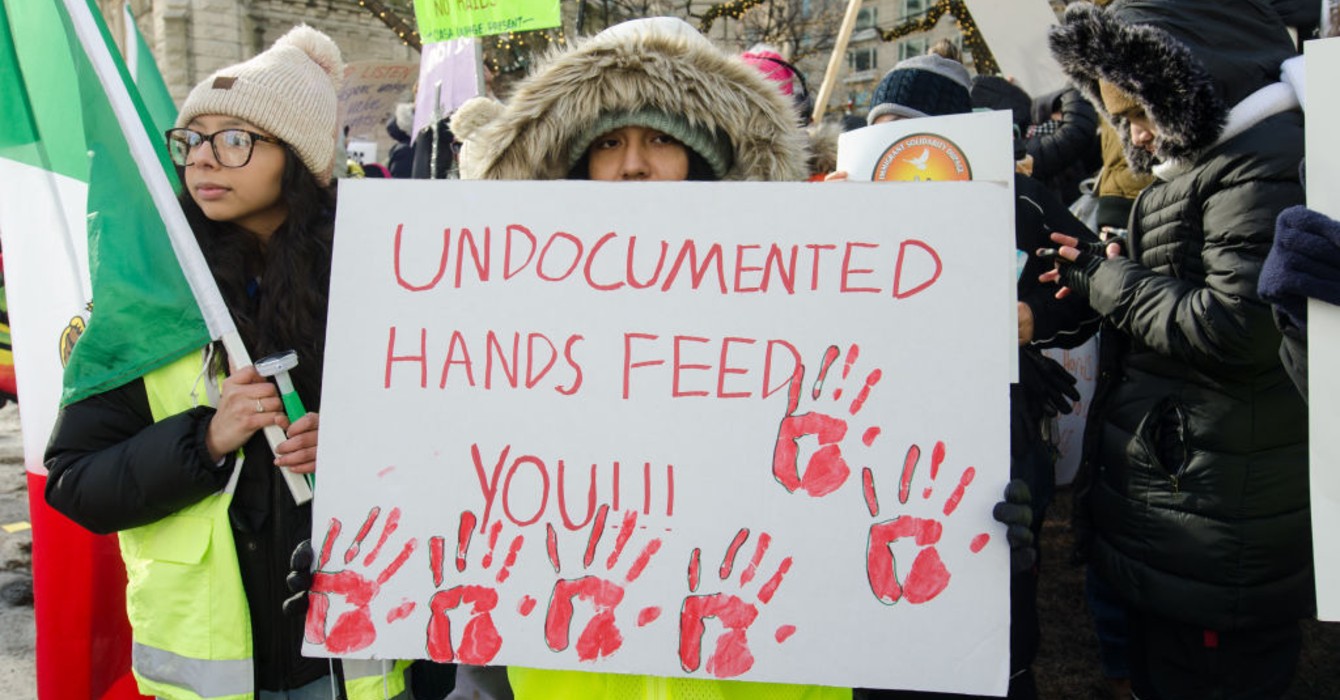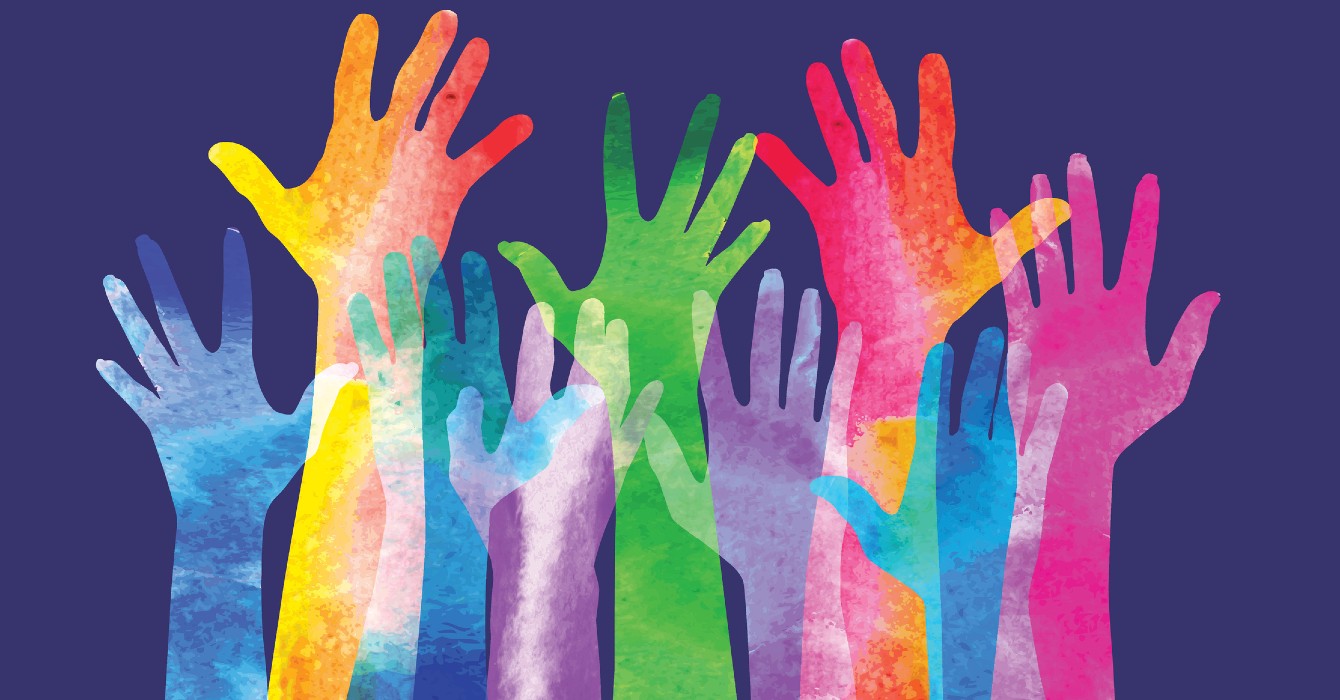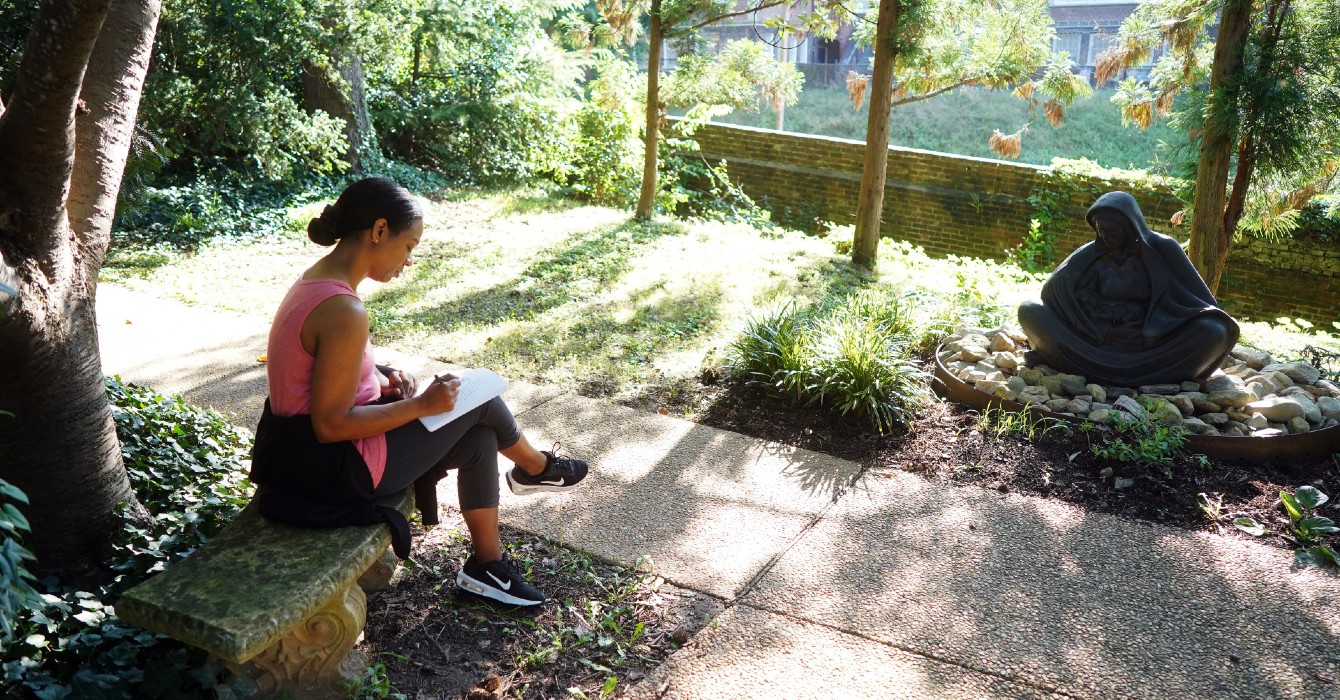In the approach to the U.S. political elections, often in quiet conversations, we began to sense rising anxiety and fear in the voices of many spiritual leaders. People expressed concern — or even dread — thinking about the divisive, racist and hateful speech that had emerged in previous elections.
For those who lead congregations, there was the challenging and complex reality of offering both pastoral and prophetic ministry while at the same time assessing their own vulnerability and risk in this season.
A study published in 2024 by the Religion and Social Change Lab of Duke Divinity School reported that the almost 1,100 United Methodist congregations in North Carolina are theologically and politically diverse. This creates a “purple church,” in which people are often sitting and serving across the aisles from siblings in Christ who think differently from them.
Certain religious communities are gifted in navigating their mission in public and political spaces. The historically Black church is a noted exemplar. More recently, conservative evangelical congregations have influenced electoral politics. The mainline church, in which United Methodism is situated, has had neither a consistent voice nor a meaningful presence in political life, even though UMC churches are often anchor institutions at the heart of their communities.
Yet as the study notes, the mixed political affiliations of our UMC membership aren’t just a source of tension. They also offer an opportunity for the two sides to engage with each other. Indeed, local churches remain one of the few settings where such conversations can occur.
What would it mean for a purple church to enter faithfully into a contentious political election? And how could we hear the voice of Jesus in the Beatitudes, “Blessed are the peacemakers, for they will be called children of God”(Matthew 5:9), as both command and assurance?
To equip us in our faithful witness as peacemakers, the Peace Building Ministries of the Western North Carolina Conference launched the Purple Church Initiative in August 2024. This initiative offered a practical, intentional means of fostering peace in our differences. The resources included training for 20 clergy and laity using the 3 Practice Circles method, access to a Politics & Faith town hall in Charlotte, and digitally available guidelines for being a peaceful presence at the polls.
The core of the Purple Church Initiative was a free downloadable resource kit with weekly worship planning, Bible study, prayer guides and social media called Conversation Across the Aisles. At the end, members were invited to sign a Peace on Purpose pledge card to encourage them to be ambassadors of peace within their families, congregations and communities.
We estimate that a third of the churches in the Western North Carolina Conference engaged the Conversation Across the Aisles through sermon series, in Sunday school classes and small groups, and through weekly social media posts.
As part of this effort, Bishop Kenneth H. Carter Jr. preached a sermon across the region in the summer and fall called “Loving God, Loving My Neighbor and Loving My Country,” in which he connected Jesus’ teaching from two passages in Matthew 22: on paying taxes to Caesar (verses 15-22) and on the greatest commandments (verses 34-40).
The sermon was a reflection on democracy and equality rooted in the image of God in each person, and in it Carter distinguished between patriotism and Christian nationalism. He delivered this message in various ways, including in a video released a week before the election and as part of worship resources for a prayer service for peaceful elections.
We both heard anecdotally that the initiative was a success. In a rural county in western North Carolina, the chairperson of a political party said the Purple Church Initiative had opened conversations within his congregation. His community had been hit by Hurricane Helene, and political polarization was contributing to suspicion and a heightened ethos of violence in this difficult time. Through the initiative, people in the church and community engaged in healing conversations, he said.
In another instance, the pastor of a thriving urban church led the congregation through the weekly sermon series and offered small group discussions. Participants said they were grateful and relieved to have the sacred space and time to step away from their usual echo chambers and were able to have holy conversations across differences.
We know it’s not a perfect solution; we’ve heard criticism that the Purple Church Initiative allows people to avoid the hard conversations that love requires. Our experience has been different, however. We saw that for many congregations, the initiative offered an intentional process and context for neighbors to move toward one another. They could express deeply held convictions while finding unity in their core identity in Christ and in our Wesleyan tradition.
The idea for the initiative was to offer conversation starters, not conversation stoppers. We hope people will continue to engage in even deeper and more challenging dialogue moving forward. We know the election isn’t the end; it’s a beginning. And of course, we are still a purple church.
In his sermon “Catholic Spirit,” John Wesley said, “Though we cannot think alike, may we not love alike? May we not be of one heart, though we are not of one opinion?” To love alike requires us to be in genuine relationships that move beyond ignoring — or worse, silencing — different opinions. It requires us to engage in a conversation across the aisles that moves beyond keeping the peace to being ambassadors of peace.
Moving forward, we must boldly reclaim that our identity is not rooted in any political affiliation but instead in the beloved community. As disciples commissioned to transform the world, we must pledge our allegiance to Jesus Christ and to the kinship of God that welcomes the stranger, embraces the disenfranchised and cares for the least of these. This is our unifying mission.
Now more than ever, our communities need to experience our faithful witness as United Methodists who make peace, not just keep it, by working together to be of one heart, notwithstanding our differences.
We know the election isn’t the end; it’s a beginning. And of course, we are still a purple church.

